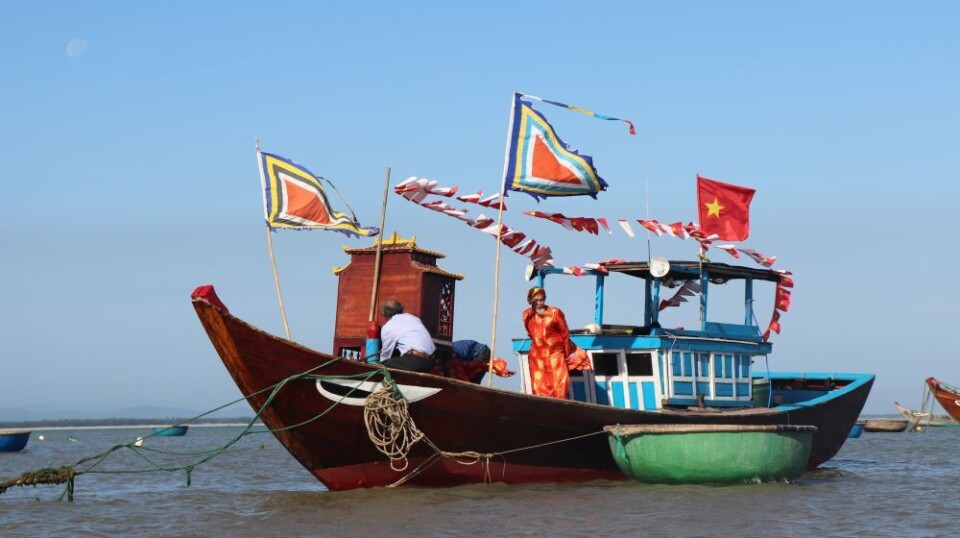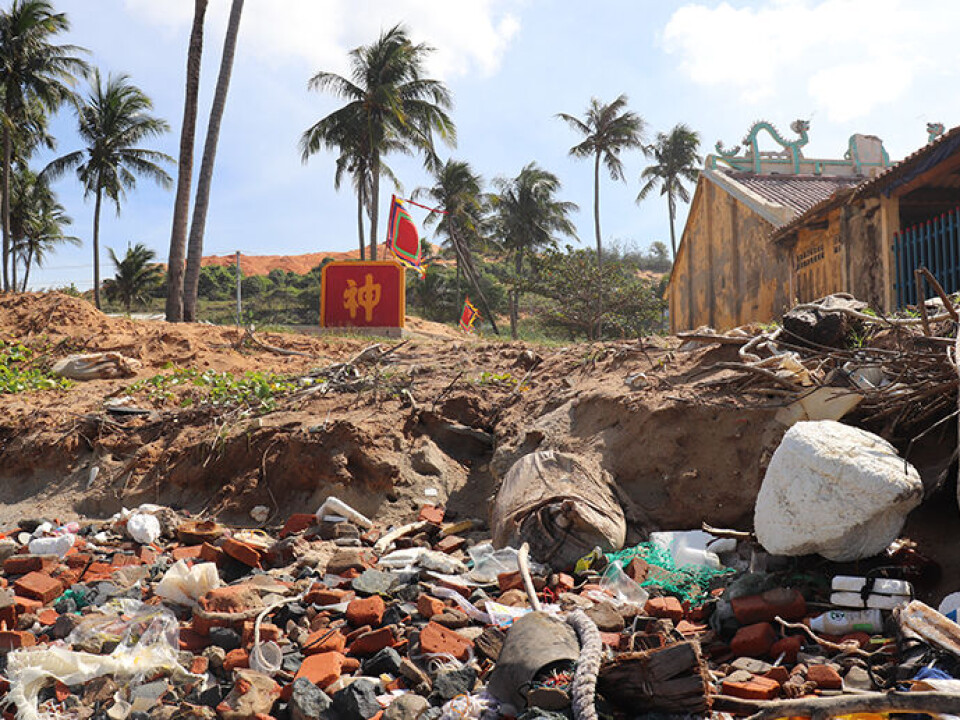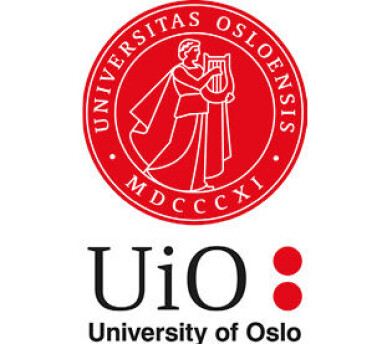THIS CONTENT IS BROUGHT TO YOU BY University of Oslo - read more

Are nature religions more environmentally friendly?
“I understand that people like the idea,” says Aike Rots.
In recent decades, anthropologists, religious scholars, and philosophers have shown increasing interest in animism – the idea that humans, animals, trees, plants, places, and objects in nature possess some form of soul.
Can such religious traditions help us address the significant challenges of climate change and the ecological crisis?
“I understand that people like the idea,” says Aike Rots.
He is a professor of Japan Studies at the University of Oslo.
“But we haven't found compelling examples of animist beliefs driving the systemic changes we need,” he says.

Rots has previously explored the Japanese Shinto religion in search of answers.
“An image was created that Shinto is an ancient nature religion that can be used to solve or handle today's environmental problems. That idea emerged in the 1990s and 2000s, but it has not led to significant changes in consumption patterns or climate policy in Japan,” he explains.
Water gods swimming in plastic
Rots and researcher Nhung Lu Rots have continued searching for answers, including in whale-worshiping fishing communities in Vietnam.
This research resulted in the article When Gods Drown in Plastic, which recently won the Environmental Humanities' annual best article prize.
“Many Vietnamese fishermen view whales as an incarnation of the sea god. They arrange festivals and build temples to honour the whales,” says Rots.
Fishing communities along the coast of Vietnam are directly impacted by both climate change and the ecological crisis. They are affected by overfishing, and their beaches are overflowing with plastic waste from rivers and the sea. Erosion threatens to wash away the tourist-friendly beaches.
“When this occurs, they pray to the water god, the whale, asking for help to restore the sand. They're very aware of the situation, and they're worried, but it's difficult to live in an environmentally friendly way in the world we live in today,” says Rots.
There is little evidence of sustainable practices or environmental action in their everyday lives.
They fish with nets made of plastic. Some of the rituals to honour the whale god involve throwing plastic bottles into the sea. At the same time, neither Rots nor his colleagues have found reflections on how this plastic threatens the whales they worship.
Religious values have limited influence
Rots does not point this out to criticise the Vietnamese fishermen – quite the opposite. They do not have much of a choice.
“Some Western researchers have expectations that religious ethics and values can help us live in a more environmentally friendly way, maybe even solve some of these problems. I find that problematic when you look at what people actually do, because it's so difficult to live differently,” he says.
Having an animistic worldview does not automatically lead to environmentally friendly actions.
“The world is still dependent on fossil fuels. We can't expect religious values or rituals to provide us with a way out of this because we are all part of that system,” he says.

“The role that religious values or religious practices can play in this is perhaps more limited. For instance, it doesn't seem like the Church of Norway has significantly influenced the Norwegian government's energy policy,” he adds.
Belief in animal souls does not prevent hunting
The belief that animals, plants, mountains, and the sea have a soul or something equivalent does not necessarily lead to them being protected. But it might at least involve some gratitude and reverence.
For instance, rituals might be performed before cutting down a forest. But the forest is still cut down.
Rots' colleague Florence Durney has studied a fishing community in Indonesia where people believe their ancestors' spirits live on in whales. This belief does not prevent them from hunting whales – they need them. They simply ensure that the appropriate rituals are performed.
Rots explains that recognising that animals are spirits, that they have a will, does not mean they are not killed.
“I'm particularly interested in these rituals that help us navigate life and connect with the world around us. I believe that rituals are essential, and we're continually creating new ones,” he says.
Recycling is also a ritual
It is not solely about offerings to whale gods. Rots also views our recycling practices as a type of ritual.
“There's a great debate about the effectiveness of recycling, and some argue that it contributes to the individualisation of responsibility. It's just a small action that doesn't have much impact. However, I view recycling more as a ritualistic act,” he says.
Perhaps it helps us organise the world and become a bit more aware of our situation. Perhaps gives us a sense that we are doing something.
“And that can have value, but it's not a solution to the major challenges we face today with climate change and the ecological crisis. Neither recycling nor Buddhist rituals solve this problem. That doesn't mean it isn't valuable. But changes that will really make a difference have to come from other places. For that, we need political mobilisation and systemic change,” says Rots.
Reference:
Rots, A.P. & Rots, N.L. When Gods Drown in Plastic: Vietnamese Whale Worship, Environmental Crises, and the Problem of Animism, Environmental Humanities, vol. 15, 2023. DOI: 10.1215/22011919-10745957

This content is paid for and presented by the University of Oslo
This content is created by the University of Oslo's communication staff, who use this platform to communicate science and share results from research with the public. The University of Oslo is one of more than 80 owners of ScienceNorway.no. Read more here.
More content from the University of Oslo:
-
Where humans outshine AI: “There's something hopeful in these findings”
-
Why we need a national space weather forecast
-
Mainland Europe’s largest glacier may be halved by 2100
-
AI makes fake news more credible
-
What do our brains learn from surprises?
-
"A photograph is not automatically either true or false. It's a rhetorical device"




































